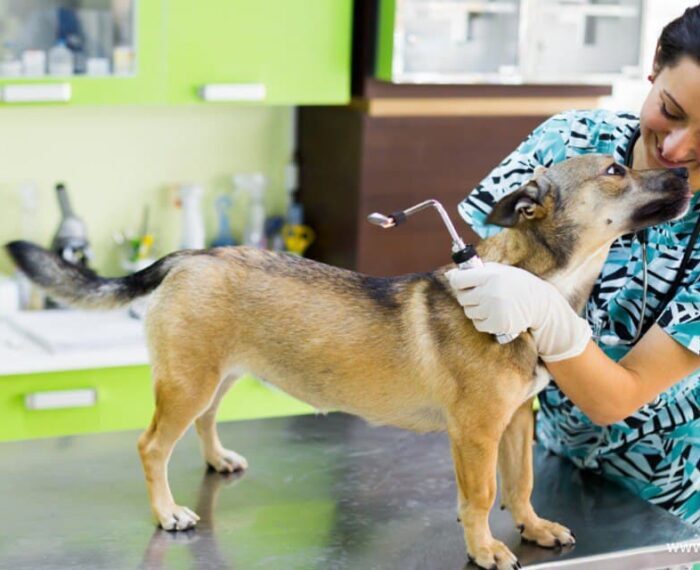Everybody has a preferred protein to feed their doggies, but knowing what sort of protein your doggy likes and how much to consume important as well. Here is an in-depth explanation of how to select the best protein for your doggy.
Even though doggies are omnivores, they require primarily protein to survive and grow. Protein is made up of important amino acids that are required for cell synthesis. Dogs might suffer a variety of health problems if they don’t get enough protein in their diet. They’ll lose energy, their coats will dull and lifeless, and their immune systems will be weakened.
Amino Acids
Amino acids, sometimes known as “protein building blocks,” may have been discussed in high school chemistry class. Don’t worry; there won’t be a quiz at the end of this, but knowing how amino acids work will immensely assist you in selecting a nutritious meal for your doggy.
There are 22 amino acids in a doggy’s diet, which stack up like Jenga pieces. The body produces 12 of these amino acids, but the remaining 10 must be obtained through the doggy’s diet. Because these ten amino acids are required for a doggy’s existence, they are known as essential amino acids. Because doggies are unable to produce critical amino acids, they must be provided in their diet.
How much protein needed for your doggy?
Each pound of your doggy’s optimum body weight requires 1 gram of protein per day. What exactly does this imply? Assume you have a 40-pound canine companion (the average body weight). Your doggy will require 40 grams of protein every day.
You’ll still need to calculate your doggy’s protein at they’re target body weight if they’re overweight. That implies if your doggy weighs 48 pounds but should weigh 40 pounds, he requires 40 grams of protein each day.
Best sources of Protein for your Doggy
• Fish
Most people think of cats when they think of giving fish to their pets. Fish, on the other hand, is a wonderful source of protein for doggies when cooked properly. Many popular doggy food brands include fish or fish meals in their formulae, with salmon being the most popular choice due to its high omega-3 fatty acid content.
• Cheese
Although there aren’t many doggy food manufacturers that contain cheese in their recipes, it is a very feasible source of protein for canines. While both ordinary cheese and cottage cheese are high in protein, they differ in terms of fat content. Cottage cheese is a better alternative if your doggy could benefit from a lower-fat diet.
• Eggs
Although eggs may not immediately spring to mind when thinking of the finest protein sources for doggies, they are a good source of protein that can be found in some doggy food formulae and many homemade diets. You might be shocked to learn that eggs are a better source of protein than meat since, when cooked, a doggy can extract more protein from them.
• Real Meat
On a doggy food label, there are a lot of components to choose from, and it can be tough to figure out what they all signify. When you read it, however, there’s no mistaking real, named meat. Real meat is the most natural source of protein for a doggy (Venison, Turkey, Chicken, Beef, Duck, Liver, etc.); it’s what their digestive system was created to eat, as their wild predecessors demonstrated.
Conclusion
Check the contents label on your doggy’s food with a clear grasp of how digestible and hence nutritionally helpful a particular kind of protein can be. The first five components are frequently the most crucial because they specify the type of protein used as the principal component of the formula. They are arranged by volume from highest to lowest. Is your present brand using high-value or low-value protein sources, regardless of its reputation or marketing? You can either continue to feed your doggy that brand with confidence or decide it’s time to switch to a healthier brand based on what you see.


